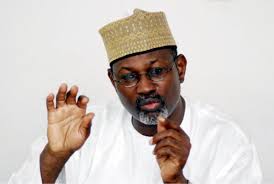
Former Minneapolis police officer Derek Chauvin was sentenced Friday to 22 years and six months in prison for murdering George Floyd, a videotaped killing that triggered the most profound racial upheaval in the U.S. since the civil rights era.
According to Bloomberg, the punishment ended one chapter of a reckoning that spread from questions of official force to a broad reappraisal of discrimination inherent in American institutions.
More than a year after the killing, matters of race have taken center stage as the nation emerges from protests and the pandemic.
BloombergLISTEN: Bloomberg’s June Grasso discusses the sentencing of Derek Chauvin with Carol Massar and Tim Stenovec on Bloomberg Radio
A jury in April convicted Chauvin in the death of Floyd, a 46-year-old Black man and father. On May 25, 2020, Chauvin knelt on Floyd’s neck for 9 minutes and 29 seconds after detaining him on suspicion of passing a counterfeit bill. Floyd begged for mercy as his air supply dwindled.
Images of the incident, which followed years of high-profile police killings of Black men and women, spread swiftly across the internet and television screens. Ultimately, they led to the rare conviction of a police officer for excessive force.
Under Minnesota law, Chauvin faced up to four decades in prison. The prosecution team had requested Chauvin receive 30 years behind bars in a June 2 memo, saying that his actions “shocked the nation’s conscience” and that such a sentence would account for the “profound impact” on Floyd’s family and community.
Judge Peter Cahill issued a 26-page sentencing order in which he explained the punishment. He said it was it written in dry legalisms, because it was based on “not sympathy or emotion. But at the same time I want to acknowledge the deep and tremendous pain all the families are feeling, especially the Floyd family.”
As Cahill read the sentence, Chauvin gazed fixedly above a mandatory surgical mask that hid his expression.
Chauvin offered condolences to the family of his victim during the hearing, the first time he spoke during his trial, but said little more because of pending legal issues.
During the sentencing, both families were allowed to speak of their particular grief.
Philonise Floyd, the victim’s brother, said the crime repeats itself without cease.
“Every day I have begged for justice to be served, reliving the execution of George,” he said “I haven’t had a real night’s sleep because of the nightmares of hearing my brother beg for his life over and over again.”
“My family and I have been given a life sentence.”
Carolyn Pawlenty, Chauvin’s mother, said she spoke for the family. She called her son “a quiet, thoughtful, honorable, and selfless man.”
“When he is released, his father and I most likely will not be here,” she said. Pawlenty addressed her son directly: “There is no stronger bond or love than a mother’s love.”
But Brandon Williams, Floyd’s nephew, observed that Chauvin, even in prison, “will have the luxury of seeing his family.”
Judicial Calculations
Cahill, who presided over the trial, had signaled that Chauvin could receive a longer sentence than recommended by state guidelines. After the conviction, Cahill said in a May 12 order that Chauvin had abused “a position of trust and authority” and treated Floyd “with particular cruelty.”
The judge also noted that children were witnesses to Floyd’s murder — a 17-year-old made the video that turned the death into a cause, and she was awarded a special Pulitzer Prize this year for her citizen journalism.
Cahill said that Chauvin committed the crime with three other former officers, Tou Thao, J. Alexander Kueng, and Thomas Lane, who were seen on the viral video assisting in the arrest. They are to be tried in March 2022.
On Friday, protesters chanted “one down, three to go” outside the courthouse.
George Floyd supporters view smartphones live streaming the sentencing of former Minneapolis police office Derek Chauvin outside the Hennepin County Government Center in Minneapolis, on June 25.
Chauvin’s defense attorney, Eric Nelson, had asked the court in a June 2 memo to sentence his client to probation and time served. Nelson asked the court to “look beyond its findings, to his background, his lack of criminal history, his amenability to probation, to the unusual facts of this case, and to his being a product of a ‘broken’ system.”
Nelson also laid the groundwork for a potential appeal. Moments after jurors went into deliberation April 20, Nelson pleaded with Cahill to declare a mistrial, pointing to the “public context,” including comments from U.S. Representative Maxine Waters in which she urged protesters to “get more confrontational” if Chauvin wasn’t convicted.
Cahill denied Nelson’s bid, but acknowledged the defense may have grounds for an appeal. Hours before the sentencing, Cahill denied Chauvin’s request for a new trial, in which he argued that the judge didn’t do enough to insulate jurors from publicity and unrest surrounding the case.
National Matter
Friday’s sentence is a mere beginning, national NAACP president Derrick Johnson said in a prepared statement.
“While George Floyd’s murderer was held accountable in court, we know that no amount of jail time is going to bring Gianna Floyd’s father back,” Johnson said. “Legislation is urgently needed to ensure that what happened to George Floyd over a year ago will not happen again a year from now, and devastate another family. We need a federal standard in policing to protect the lives of those often targeted.”
Republican Senator Tim Scott of South Carolina said this week that an agreement on legislation to overhaul policing practices is close. Scott has been working with two Democrats, Senator Cory Booker of New Jersey and Representative Karen Bass of California on a bill to make law enforcement officers more accountable for injuries and deaths they cause. Negotiations have been going on since April, when Chauvin was convicted.
But far from the halls of power, the crime’s impact was even more intense. Gianna Floyd, 7, once said her father changed the world, a phrase quoted by President Joe Biden. But in a videotaped statement, told the court Friday that she misses that world-changing man helping her to brush her teeth.
“I want to play with him,” she said.









